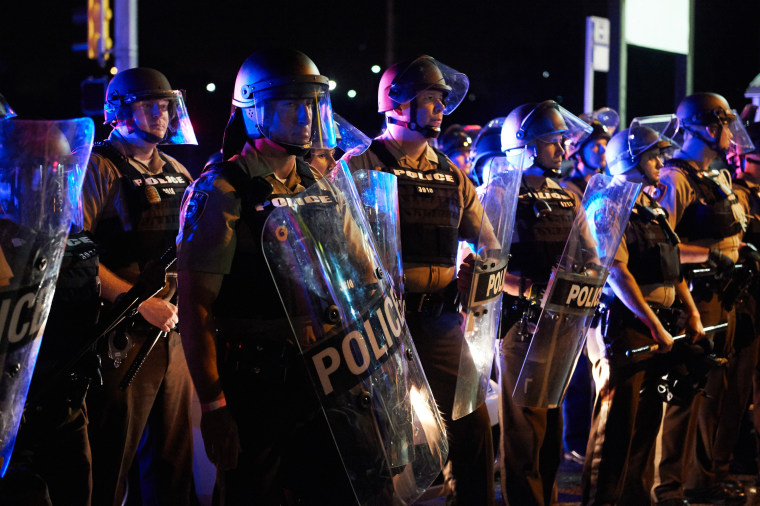The Missouri Supreme Court on Tuesday knocked down parts of a law intended to protect minorities from unfair police action and revenue collection in Ferguson and the rest of St. Louis County.
The law, known as SB5, came into effect after the Department of Justice found that the county's municipal court system had a revenue collection model that promoted police abuse of minorities. The DOJ's investigation occurred in response to the 2014 police shooting of Michael Brown.
Ferguson's black citizens, who make up about 67 percent of the city's 21,000 residents, were subject to 85 percent of traffic stops, and 93 percent of all arrests from 2012 to 2014 — all fee-generating infractions.
Related: U.S. Finds Pattern of Biased Policing in Ferguson
SB5 aimed to limit this revenue by setting a cap of 12.5 percent, down from 30 percent, on collections from traffic fines and courts fees and set minimum standards for law enforcement in St. Louis County.
Other parts of the state had caps of 20 percent.
But the state's highest court ruled SB5 was unconstitutional Tuesday because the special legislation treated St. Louis County different from other parts of the state by imposing different standards.
"The population classification sections of SB 5 are unconstitutional special laws," the court wrote in its opinion. "The section enacting a 12.5-percent revenue cap on certain municipalities is severed from the rest of the section, resulting in a statewide 20-percent cap on fines, bond forfeitures and court costs."
Civil rights organizations felt that, despite its aim for uniformity, the ruling did not address a bigger statewide issue of racially discriminatory practices.
Related: Ferguson, Missouri, Declines to Elect First Black Mayor
"While I agree that the rule should be applied evenly across the state, the people who are always the most impacted are now going to suffer a little bit more," said Adolphus Pruitt, president of the St. Louis chapter of the NAACP. "The cap of 12.5 percent assumes that police abuse is only in St. Louis County, but that's not the case, this happens everywhere. So why shouldn't the legislature reexamine the 20 percent in the entire state? That would acknowledge that there is a bigger problem," he said.
This was an overall win for the municipal courts that were collecting money through systematically racist practices, said Thomas Harvey, executive director of Arch City Defenders, a civil rights law firm in St. Louis.
"Legislation like this fails to deal with the real problem, even if the caps were at 10 percent," he said. "It treats the issue as an economic one and doesn't get into an analysis of race." He added that economic caps won't solve justice problems.
"There shouldn't even be 20 percent coming in from illegal practices, it should be zero percent," he said.
For now, any changes to the state-wide cap will have to be reexamined next year by the state legislature, which ended its session last week.
